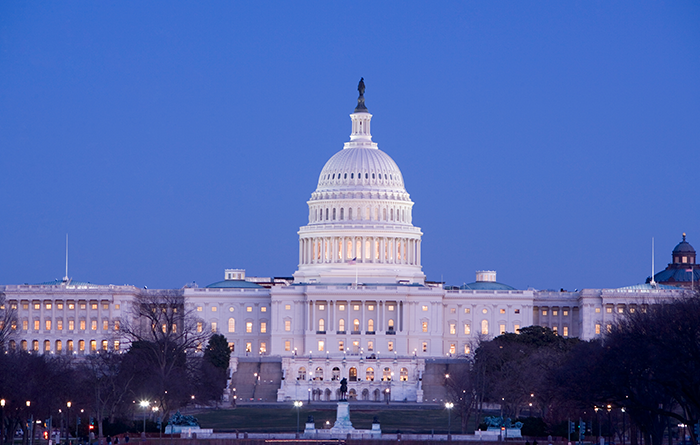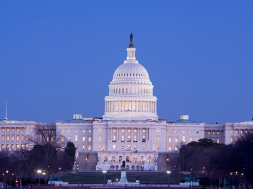
Washington News Brief
By Sharon H. Bob, Ph.D, Higher Education Specialist, Powers Pyles Sutter & Verville, PC
ED issues notice about 2021-2022 award year deadline dates
On June 24, 2021, the Department of Education issued a notice in the Federal Register of the 2021-2022 award year deadlines dates for the receipt of documents and other information from applicants and institutions participating in certain Federal student aid programs.
A copy of the notice is found at: https://www.govinfo.gov/content/pkg/FR-2021-06-24/pdf/2021-13379.pdf
OIG releases report regarding sale of schools to Dream Center Education Holdings
On June 29, 2021, the Department of Education’s Office of Inspector General (OIG) released a report titled, “Inspection of the Department’s Activities Surrounding the Sale of Postsecondary Schools to Dream Center Education Holdings.” (ED-OIG/105T0010) The OIG found that during and after the Federal Student Aid’s (FSA) preacquisition review, the Department identified significant financial risks associated with Dream Center’s purchase of 13 postsecondary schools, including Dream Center’s loss of the financial backing of an investor who was expected to provide at least 50% of the capital for the purchase. The OIG also found that the Dream Center lacked experience in operating schools participating in Title IV programs, had potential cash flow issues, and had more than a decade of failing financial health scores for all 13 schools. Since 2006, the Department had required Education Management Corporation to post a letter of credit to mitigate the financial risks posed by its schools’ continued noncompliance with financial responsibility regulations.
The report stated that on May 8, 2018, the Department took the “unprecedented action of approving temporary nonprofit status for two schools, retroactive to the date of the change in ownership.” The Department took this action, according to the report, without having made a final decision about whether the two schools satisfied the regulatory definition of a nonprofit school. In addition, the report found that the Department made decisions about the approval of the transaction without completing its due diligence. The Department also released $50 million in surety funds to allow the Dream Center to pay the operating expenses of the school locations that Dream Center was closing. The report indicated that normally surety funds held by the Department are used to cover potential student refunds, the additional costs that other postsecondary schools incur to teach out students who are transferring from the closing schools, loan discharges, and liabilities that the closing schools might owe to the Department. Finally, the Department’s oversight was not rigorous enough to ensure that the Dream Center complied with requirements for drawing down and disbursing Title IV funds.
A copy of the OIG report is found at: https://www2.ed.gov/about/offices/list/oig/auditreports/fy2021/i05t0010.pdf
Senate and House Education Committee leaders urge President to extend student loan payment pause
On June 30, 2021, Senate Health, Education, Labor and Pensions Committee Chairwoman Patty Murray (D-WA) and House Education and Labor Committee Chairman Bobby Scott (D-VA) sent a letter to President Joe Biden urging him to extend the pause on student loan payments until early 2022. The members noted that the pause on student loan payments has been a lifeline for struggling borrowers during the health and economic crisis and that borrowers need more time and support in order to navigate resuming repayments. Further, the letter said that the Department should use the additional time to provide borrowers “with an effective re-entry for repayment.”
A copy of the letter is found at: https://www.help.senate.gov/imo/media/doc/2021-06-30%20Letter%20to%20Pres.%20Biden%20Payment%20Pause%20Extension.pdf?source=email
Politico reported that the Department of Education officials are recommending that the White House extend the pause on federal student loan payments, interest, and collections through the end of September. However, the Biden Administration has not yet made a final decision on how and when to restart federal student loan payments, which have been paused since March 2020.
GAO report finds that ED did not create and follow proper guidelines to ensure COVID-19 relief funds were properly distributed
In July 2021, the Government Accountability Office (GAO) released a report titled, “COVID-19: Continued Attention Needed to Enhance Federal Preparedness, Response, Service Delivery, and Program Integrity,” that found the Department of Education did not create and follow proper guidelines to ensure COVID-19 relief funds were distributed properly to institutions of higher education. The GAO found that for 5.5 percent of schools receiving HEERF grants, the Department awarded grants that exceeded the amounts allocated, including three instances in which the Department obligated $20 million more than was allocated. The GAO report concluded that the miscalculations were largely due to the large number of grants and the speed at which they needed to be distributed to address the pandemic.
A copy of the GAO report is found at: https://www.gao.gov/assets/gao-21-551.pdf
OIG releases resources for financial aid administrators for identifying fraud
The Department of Education’s Office of Inspector General (OIG) has released a number of resources for student aid administrators with the objective of helping them identify and report student aid fraud. The OIG’s informatic states: “Criminals and bad actors are taking advantage of this crisis, preying on students, schools, and other educational entities charged with administering and overseeing these funds. We want to stop them.”
A copy of the informatic is found at: https://www2.ed.gov/about/offices/list/oig/misc/student-aid-administrator-fraud-awareness.pdf
The OIG website reminds institutions that they are responsible for reporting fraud, waste, or abuse to the OIG. The report can be made at the OIG Fraud Hotline at: https://www2.ed.gov/about/offices/list/oig/hotline.html. The governing regulations can be found in the verification regulations under 34 C.F.R. § 668.16.
ACICS files appeal to ED regarding its decision to terminate the agency’s recognition
On July 2, 2021, the Accrediting Council for Independent Colleges and Schools (ACICS) filed its appeal to the Secretary of Education regarding the Senior Department Officials’ decision to terminate ACICS’ recognition as an accrediting agency.
In asking the Department to reverse its decision, ACICS said:
“…since 2016 and through the most recent decision, the agency’s recognition review process has been riddled with procedural defects and tainted by prejudicial politicization and that the SDO’s decision is arbitrary, capricious, an abuse of discretion, and otherwise not in accordance with the law. ACICS notes the critical findings by the Office of Inspector General in June 2018 and March 2021 reports regarding the pervasive failure by Department staff to review the complete record and apply consistent and equitable recognition standards to ACICS.”
A copy of the ACICS notice is found at: https://www.acics.org/news/acics-files-appeal-to-the-secretary-of-education-of-the-senior-department-official-decision-to-terminate-agency-recognition
PHEAA announces it will not extend federal student loan servicing contract; NHEAF follows suit
On July 8, 2021, the Pennsylvania Higher Education Assistance Agency (PHEAA) announced that it had notified the Department of Education’s Office of Federal Student Aid (FSA) that it would not accept an extension of its federal student loan servicing contract, which expires on December 14, 2021. PHEAA said that it would continue to expand its commercial servicing, student lending, and software services as it refocused on its core mission.
A copy of the PHEAA announcement is found at: https://www.pheaa.org/documents/press-releases/ph/070721.pdf
On July 19, 2021, the New Hampshire Higher Education Assistance Foundation (NHHEAF) announced that it will not seek renewal of its federal student loan servicing contract, which expires Dec. 31, 2021.
A copy of the NHHEAF’s announcement is found at: https://www.nhheaf.org/pdfs/press/2021/NHHEAF_Network_Public_Announcement_07-19-21.pdf
ED approves borrower defense claims for students at three institutions
On July 9, 2021, the Department of Education announced the approval of over 1,800 borrower defense to repayment claims for borrowers who attended Westwood College, Marinello Schools of Beauty, and the Court Reporting Institute. This is the first time the Department has announced payment of borrower defense claims for students who attended institutions other than Corinthian Colleges, ITT Technical Institute, and American Career Institute since 2017. These borrowers will receive 100% loan discharges, resulting in about $55.6 million in relief.
A copy of the announcement is found at: https://www.ed.gov/news/press-releases/department-education-approves-borrower-defense-claims-related-three-additional-institutions
ED issues notice seeking third-party comments for accrediting agencies currently undergoing review for purposes of recognition
On July 12, 2021, the Department of Education published a Notice in the Federal Register seeking written comments for accrediting agencies currently undergoing review for purposes of recognition by the Secretary of Education. The agencies are listed by the type of application each agency has submitted. Written comments from third parties must be received by the Department of Education by Aug. 15, 2021.
A copy of the Notice is found at: https://www.govinfo.gov/content/pkg/FR-2021-07-12/pdf/2021-14741.pdf
ED announces temporary waiver of verification process
On July 13, 2021, the Department of Education announced that it was making temporary changes to the verification process for the remainder of the 2021-2022 FAFSA processing and verification cycle, including summer periods attached to the 2021-2022 award year. The Department indicated that the temporary changes will provide relief to millions of students and colleges facing challenges as a result of the COVID-19 pandemic. The Department will focus its verification efforts on identity theft and fraud, which will reduce some of the barriers that have prevented students most in need from accessing critical financial aid funds. For the remainder of the 2021-2022 award year, institutions will no longer be required to verify any of the income data elements, taxes paid, household size, and number in college in any tracking group (V1 or V5) if the student has been assigned V1 or V5. The Dear Colleague letter reminds institutions that they must continue to resolve conflicting information that impacts the student’s Title IV aid. The Dear Colleague letter also describes the reporting requirements for students selected for verification.
A copy of the Department’s press release is found at: https://www.ed.gov/news/press-releases/us-department-education-announces-temporary-changes-federal-aid-verification-process-2021-22-award-year
A copy of the Dear Colleague letter is found at: https://fsapartners.ed.gov/knowledge-center/library/dear-colleague-letters/2021-07-13/changes-2021-2022-verification-requirements
Department announces new FSA key leaders
On July 13, 2021, the Department of Education announced that it had appointed several key leaders to the Office of Federal Student Aid (FSA) that will focus on improving operations and accountability in the areas of loan servicing and postsecondary institution compliance.
A copy of the announcement is found at: https://www.ed.gov/news/press-releases/education-departments-student-aid-office-adds-experienced-leaders
House and Senate Democrats send letter to Secretary Cardona requesting information on its collection practices
On July 14, 2021, a group of House and Senate Democrats, led by Senator Elizabeth Warren (D-MA) and Congresswoman Ayanna Pressley (D-MA) sent a letter to Secretary of Education Miguel Cardona requesting information on the Department of Education’s collection practices and how the Department plans to begin the collections process when the COVID-19 pause ends. The letter states that even prior to the pandemic, “collections on defaulted student loans were catastrophic for borrowers in default, who saw their wages, tax refunds, and even Social Security checks confiscated, in addition to being forced to pay exorbitant fees.” The letter also expressed concern over how the Department will manage the debt collections on defaulted loans when payments are resumed.
A copy of the letter is found at: https://www.warren.senate.gov/imo/media/doc/Letter%20to%20ED%20about%20Wage%20Garnishment%20and%20Treasury%20Offset.pdf
ACE urges changes to Veterans’ Law affecting institutions
On July 19, 2021, the American Council on Education (ACE), along with several other higher education associations, sent a letter to Chairman Mark Takano (D-CA) and Ranking Member Mike Bost (R-IL), both of the House Committee on Veterans’ Affairs, alerting Congress to serious concerns about the new veterans’ law, Johnny Isakson and David P. Roe, MD Veterans Health Care and Benefits Improvement Act of 2020. The letter pointed out that there are new consumer information requirements in Section 108 that could confuse students. The law requires institutions to provide, prior to enrollment, a personalized estimate of students’ tuition and fees, as well as books, supplies, and living expenses, for the entire duration of the student’s program. It also requires institutions to provide an estimate of the student’s total debt upon graduation, which would presumably require schools to estimate future eligibility for federal and institutional financial aid. The letter stresses that it is not feasible for institutions to reliably estimate cost of attendance beyond the current year, and that a student’s eligibility for aid in the future years is dependent on many variables that could change over time. The law provides for two one-year waivers for these disclosure requirements. Institutions must either comply with the disclosure requirements or apply for a waiver by Aug. 1, 2021.
A copy of the letter is found at: https://www.nasfaa.org/uploads/documents/Letter_to_HVAC_Isakson_Roe_implementation.pdf
OCR releases Q&A on Title IX guidance
On July 20, 2021, the Office of Civil Rights (OCR) released a Question & Answer document to provide institutions with guidance as to how colleges and universities should investigate sexual misconduct under Title IX. The Q&A provides guidance indicating how federal officials will enforce Title IX while the Department goes through the process of reviewing and revising the regulations.
A copy of the OCR document is found at: https://www2.ed.gov/about/offices/list/ocr/docs/202107-qa-titleix.pdf
Ranking Member Foxx sends letter to Secretary Cardona regarding transition plan for student loan borrowers impacted by the loss of two student loan servicers
On July 23, 2021, Ranking Member Virginia Foxx (R-NC) sent a letter to Secretary Miguel Cardona regarding the recent announcements by two federal student loan servicers, Pennsylvania Higher Education Assistance Agency (PHEAA) and New Hampshire Assistance Foundation Network (NHHEAF), that they will not solicit a renewal of their servicing contracts with the Department of Education. The letter asks several questions including what borrowers are being told about the transition to new loan servicers. Congresswoman Foxx said the Secretary of Education owed the borrowers currently being serviced by PHEAA or NHHEAF “a transparent plan to ensure a smooth transition.”
A copy of the Congresswoman’s letter is found at: https://republicans-edlabor.house.gov/uploadedfiles/7.21.21_sec._cardona_ltr._re_nhheaf_final.pdf
ED announces funding for under-resourced institutions
On July 28, 2021, the Department of Education announced that it will distribute $3.2 billion in additional emergency grants under the Higher Education Emergency Relief Funds (HEERF) included in the COVID-19 relief package passed earlier this year. The funds will be used to support students who attend over 1,800 institutions of higher education and provide resources to help these institutions including Historically Black Colleges and Universities (HBCUs), Tribally Controlled Colleges and Universities (TCCUs), and Minority-Serving Institutions (MSIs).
A copy of the announcement is found at: https://www.ed.gov/news/press-releases/us-department-education-announces-32-billion-additional-higher-education-emergency-relief-funds-support-students-historic-and-under-resourced-institutions
House approves FY 2022 Labor, Health and Human Services, Education, and Related Agencies Appropriations Act
On July 29, 2021, the House of Representatives approved the FY 2022 Labor, Health and Human Services, Education, and Related Agencies Appropriations Act (H.R. 4502) by a party-line vote of 219-208. The seven-bill appropriations bill was combined to expedite the appropriations process in the House. Previously, on July 15, 2021, the House Appropriations Committee approved the H.R. 4502 by a vote of 33-25, on party lines. The legislation includes the following:
- Authorizes $102.8 billion in discretionary funding for the Department of Education, including $27.2 billion for the federal student aid programs, an increase of $2.64 billion above the FY 2021 level.
- Sets the maximum Pell Grant at $6,895, an increase of $400 over the 2021 level.
- Authorizes $1.03 billion for FSEOG, an increase of $148 million above the 2021 level and $1.43 billion for Federal Work-Study, an increase of $244 million above the 2021 level.
- Authorizes $2.05 billion for federal student aid administrative expenses including funds for student loan servicing.
- Modifies the 90/10 rule to increase the percentage of non-federal funds that for-profit institutions must receive to 15%.
- Amends the Higher Education Act to expand eligibility for federal student aid to include Deferred Action for Childhood Arrivals (DACA) participants and those who have received temporary protected status under the Immigration and Nationality Act.
A copy of the press release including a copy of the summary is found at: https://appropriations.house.gov/news/press-releases/appropriations-committee-approves-fiscal-year-2022-labor-health-and-human
The Senate Appropriations Committee has not begun work on any of the appropriations bills meaning that a Continuing Resolution will be required to keep the federal government open past the start of the federal fiscal year on Oct. 1, 2021.
SHARON H. BOB PH.D., Higher Education Specialist on Policy and Regulation, is a member of the Education Group at the Washington, DC law firm of Powers Pyles Sutter & Verville, PC. Dr. Bob advises all sectors of higher education regarding strategic issues pertaining to their participation in the federal student financial assistance programs, accreditation, licensure, education tax benefits, and related regulatory matters.
Contact Information: Sharon H. Bob, Ph.D. // Higher Education Specialist // Powers Pyles Sutter and Verville, PC // 1501 M Street, NW, Suite 700, Washington, DC 20005 // 202-872-6772 // Sharon.Bob@PowersLaw.com // http://www.powerslaw.com

